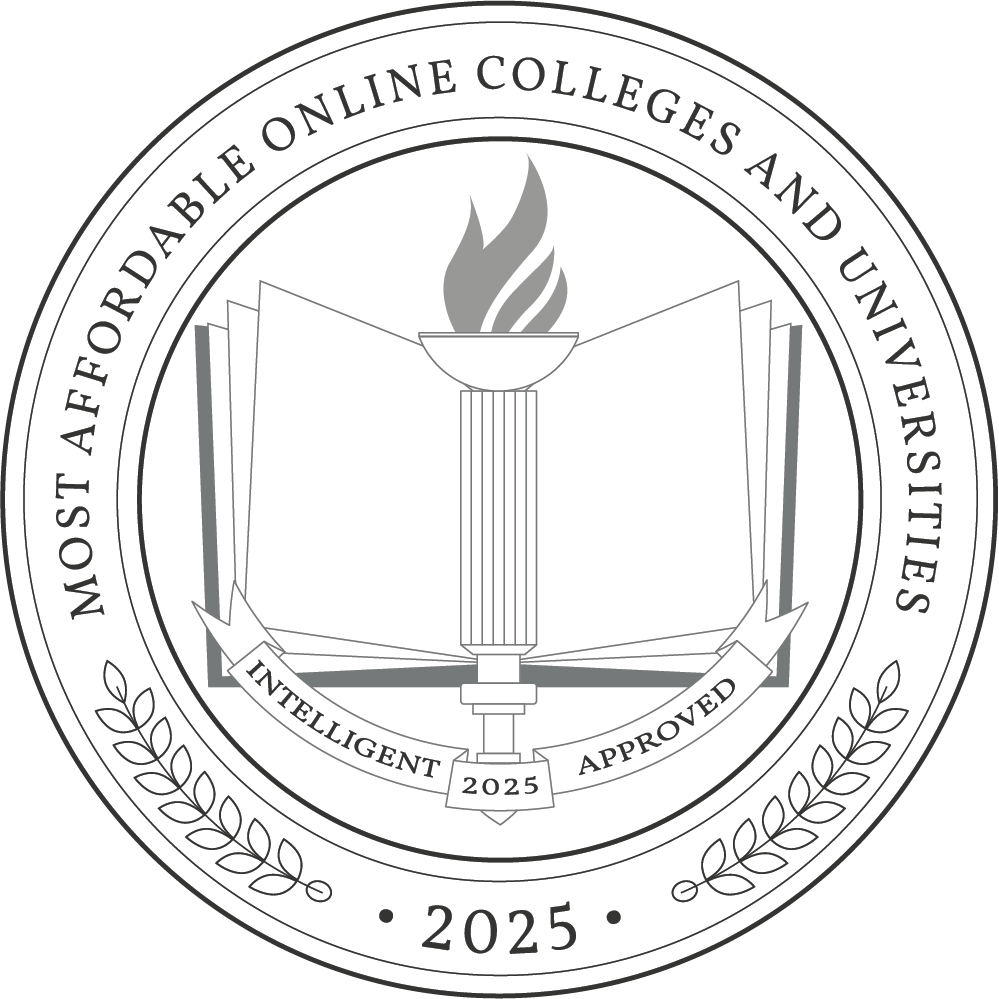Cost and affordability are two of the most important considerations students must weigh when choosing an online college. Not only will choosing an affordable online school impact your ability to complete your college degree, but it will also leave you in a better financial position post-graduation.
To help you find a college or university that meets your budget, Intelligent.com compiled this list of the most affordable online colleges and universities for 2023. Independent college counselor Dana Marvin also contributed to this article to help online students understand the factors that influence the cost of college, ways to pay for an online degree, and how to choose the online college that best meets your needs.
According to Marvin, financial aid works the same whether students enroll in an online or in-person program. “As long as the program is currently accredited by the U.S. Department of Education, the student can use any federal financial aid that they qualify for to take online classes, just as they would if they were taking traditional courses,” she says. “Additionally, some schools will offer students access to the same scholarships and grants whether they are taking online or in-person classes, while others will have separate scholarship programs depending on how you’re taking classes.”
Why Trust Us
The Intelligent.com Higher Education Team is dedicated to providing students with independent, equitable school and program rankings and well-researched resources. Our expert-driven articles cover topics related to online colleges and programs, paying for school, and career outlooks. We use data from the U.S. Department of Education’s College Scorecard, the National Center for Education Statistics, and other reputable educational and professional organizations. Our academic advisory team reviews content and verifies accuracy throughout the year for the most current information. Partnerships do not influence rankings or editorial decisions.
- Analyzed over 2,000 national, accredited, and nonprofit colleges and universities
- 800+ rankings pages are reviewed and updated yearly
- Content is informed by reputable sources, surveys, and interviews with academic advisors and other experts
- Over 100 data points are reviewed for accuracy and quality throughout the year, including sources
How we rank schools
Our list features the most affordable online colleges and universities nationwide. Each school featured is a nonprofit, accredited institution — either public or private — with a high standard of academic quality for post-secondary institutions.
We evaluated each school’s program on tuition costs, admission, retention and graduation rates, faculty, reputation, and the student resources provided for online students. We collected data from trusted sources like the National Center for Education Statistics, individual school and program websites, school admissions counselors, and other data sources. Then, we calculated the Intelligent Score on a scale of 0 to 100 based on the following criterion:
Academic Quality:
- Admission rate versus enrollment rate
- Retention rate of students who return after year one
- Accreditation status (regional and programmatic)
- Nonprofit status, both private and public institutions
Graduation Rate
- Overall graduation rate
- Total number of currently enrolled students, including diversity metrics
- Student-to-faculty ratio
Cost and ROI
- In-state and out-of-state per-credit tuition rates and fees
- Required credits to graduate
- Earning potential after graduation
- Availability of federal student loans, scholarships, and other financial aid options
Student Resources
- Available student services for online-only and hybrid programs
- On-campus amenities like tutoring centers and the number of libraries
Read more about our ranking methodology.
The Top 49 Most Affordable Online Colleges & Universities
FiltersInstitution Type
Status
- Intelligent Score
- Alphabetically By University Name
- Acceptance Rate
- Enrollment
- In-state Graduate Tuition
- Out-of-state Graduate Tuition
- In-state Undergraduate Tuition
- Out-of-state Undergraduate Tuition

University of Florida
Intelligent Score: 99.6In-state: $4,477
Out-of-state: $25,694
In-state: $10,770
Out-of-state: $10,770
SAT: 1290-1460
ACT: 29-33
Certificate: $590 Undergraduate Resident: $112 Non-Resisident: $500 Graduate: $449 - $734
Online
Southern Association of Colleges and Schools Commission on Colleges
Certificate: 9-18 Undergraduate: 120-128 Graduate: 30-60
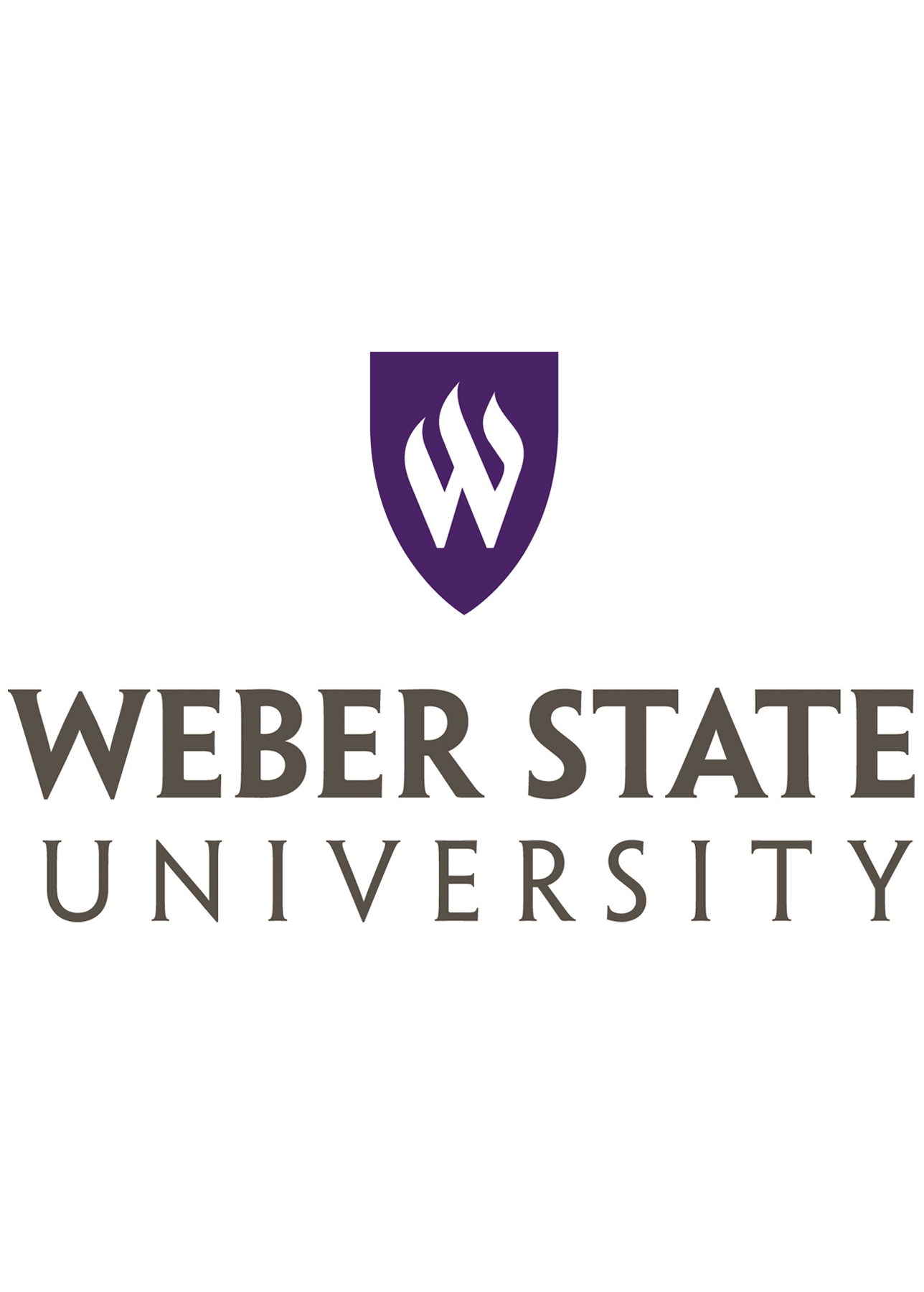
Weber State University
Intelligent Score: 99.22In-state: $5,090
Out-of-state: $15,272
In-state: $7,935
Out-of-state: $7,935
SAT: N/A
ACT: N/A
Certificate: $225UndergraduateIn-State: $506
Out-of-State: $1,495GraduateIn-State: $557
Out-of-State: $1,645
Online
Northwest Commission on Colleges and Universities
Certificate: 10-27 Associate: 60-67 Undergraduate: 120 Graduate: 31-36

Indiana University
Intelligent Score: 99.01In-state: $9,815
Out-of-state: $36,194
In-state: $9,786
Out-of-state: $9,786
SAT: 1120-1350
ACT: 24-31
CertificateIn-State: $317 - $1,410
Out-of-State: $600 - $1,410AssociateIn-State: $224 - $317
Out-of-State: $224 - $476UndergraduateIn-State: $290 - $350
Out-of-State: $390 - $475GraduateIn-State: $350 - $1,982
Out-of-State: $490 - $1,982
Online
Higher Learning Commission
Certificate: 12-36 Associate: 60 Undergraduate: 120 Graduate: 30-90

San Diego State University
Intelligent Score: 98.43In-state: $5,742
Out-of-state: $17,622
In-state: $7,176
Out-of-state: $7,176
SAT: 1090-1300
ACT: 22-29
Certificate: $230Undergraduate: $552Graduate: $566 - $593
Online, Hybrid
Western Association of Schools and Colleges Senior College and University Commission
Certificate: 15 Undergraduate: 120 Graduate: 30-51

Georgia Southwestern State University
Intelligent Score: 98.18In-state: $4,064
Out-of-state: $14,786
In-state: $3,492
Out-of-state: $3,492
SAT: 940-1110
ACT: 19-22
Certificate: $172Undergraduate: $174Graduate: $263
Online
Southern Association of Colleges and Schools Commission on Colleges
Certificate: 15-18 Undergraduate: 120 Graduate: 30-42
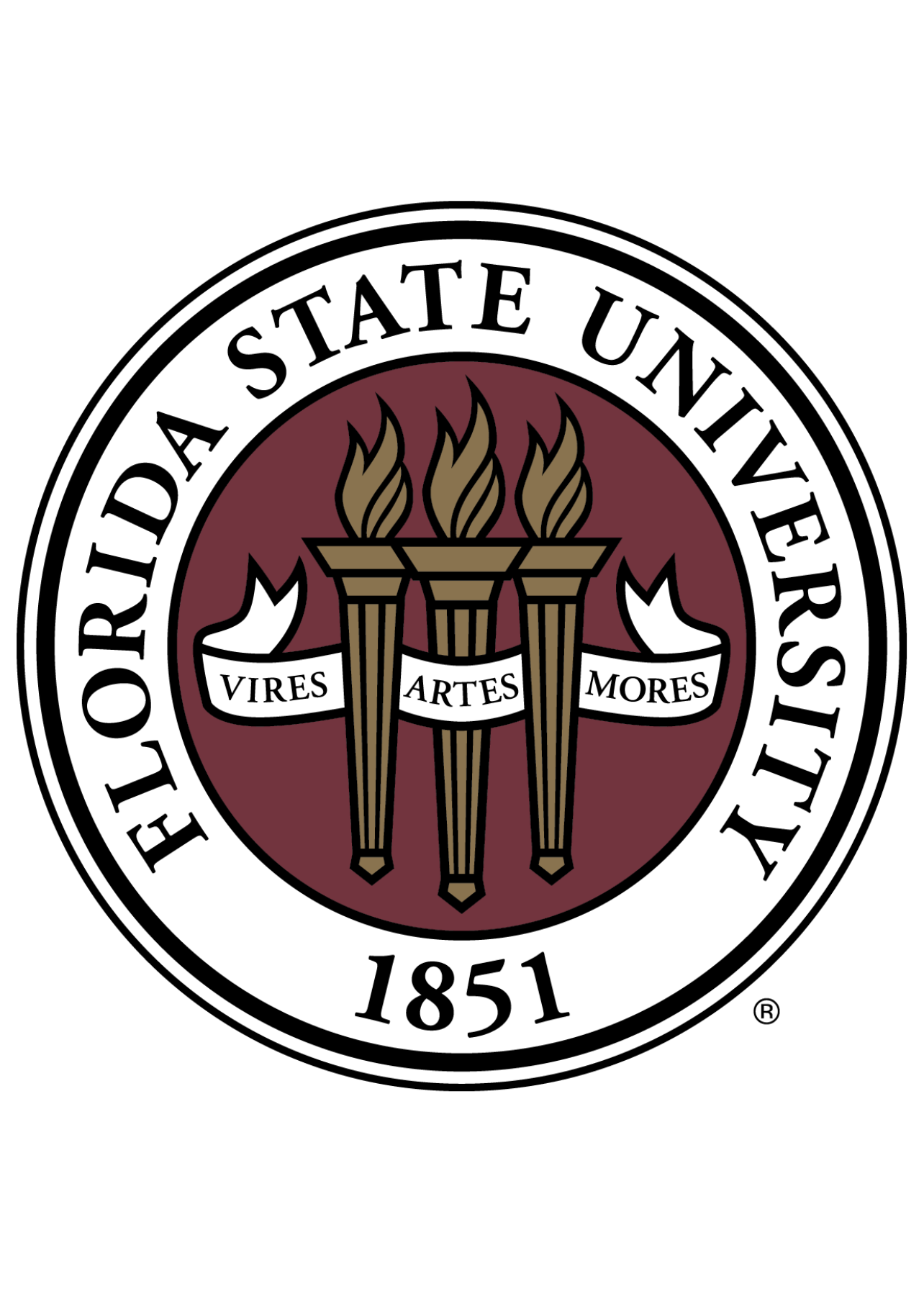
Florida State University
Intelligent Score: 97.29In-state: $4,640
Out-of-state: $19,084
In-state: $9,684
Out-of-state: $9,684
SAT: 1220-1350
ACT: 27-31
Undergraduate: $105 Graduate: $404
Online
Southern Association of Colleges and Schools Commission on Colleges
Certificate: 12-16 Undergraduate: 120 Graduate: 30-61

Florida Atlantic University
Intelligent Score: 96.02In-state: $2,522
Out-of-state: $14,374
In-state: $5,467
Out-of-state: $5,467
SAT: 1060-1220
ACT: 21-26
Undergraduate: $105 Graduate: $304
Online
Southern Association of Colleges and Schools Commission on Colleges
Certificate: 12-15 Undergraduate: 120 Graduate: 30-72

Fort Hays State University
Intelligent Score: 95.97In-state: $4,140
Out-of-state: $14,580
In-state: $3,726
Out-of-state: $3,726
SAT: N/A
ACT: N/A
Undergraduate: $257 Graduate: $338 - $453
Online, On-Campus, Hybrid
Higher Learning Commission
Certificate: 8-15 Associate: 60 Undergraduate: 120 Graduate: 30-66

Tennessee State University
Intelligent Score: 92.4In-state: $7,854
Out-of-state: $20,574
In-state: $9,276
Out-of-state: $9,276
SAT: N/A
ACT: N/A
Undergraduate In-State: $307
Out-of-State: $461 Graduate In-State: $497
Out-of-State: $746
Online, Hybrid
Southern Association of Colleges and Schools Commission on Colleges
Certificate: 15-18 Undergraduate: 120 Graduate: 33-48
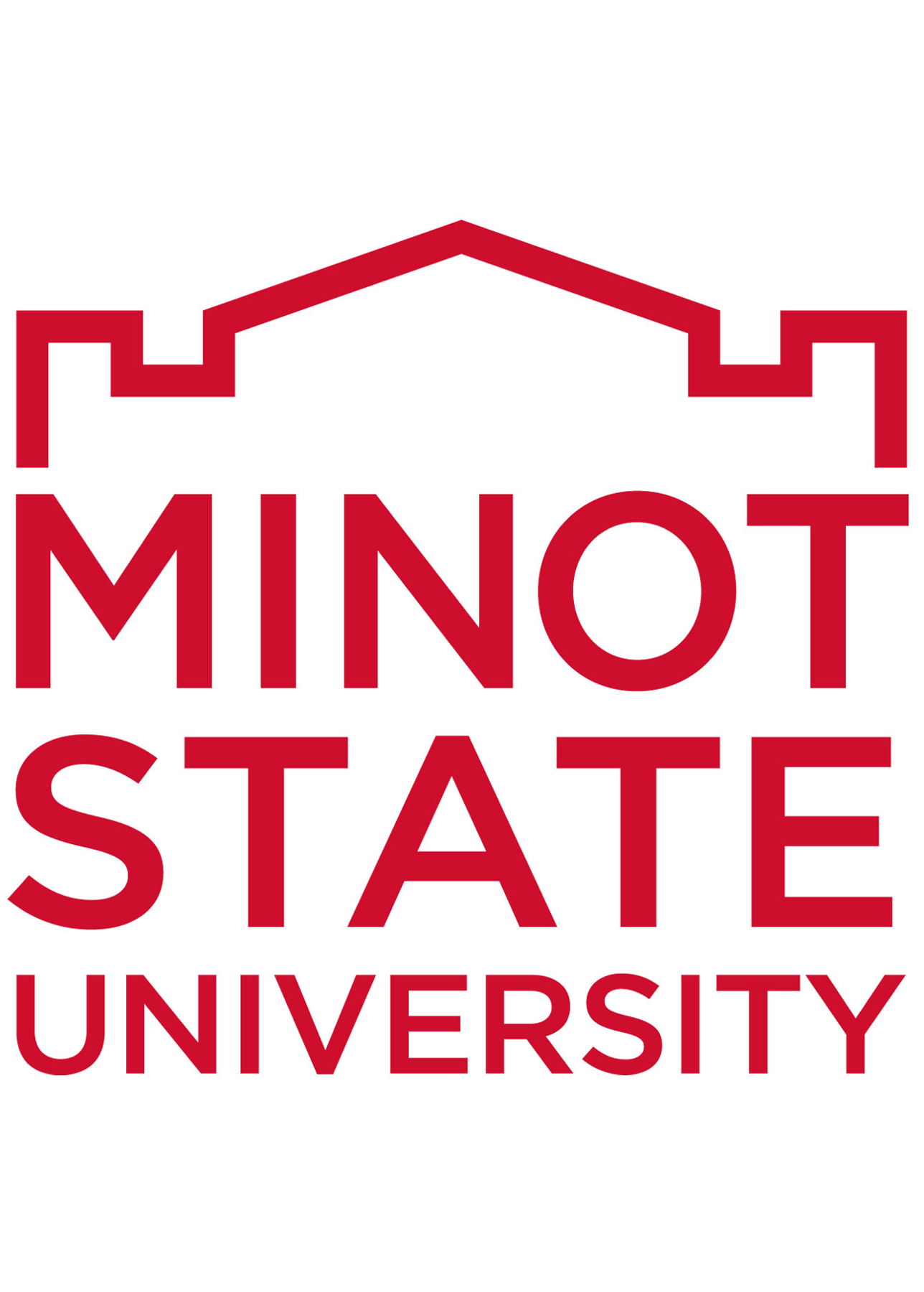
Minot State University
Intelligent Score: 91.35In-state: $6,691
Out-of-state: $6,691
In-state: $8,731
Out-of-state: $8,731
SAT: 880-1070
ACT: 18-24
Undergraduate: $299 Graduate: $390
Online, On-Campus
Higher Learning Commission
Certificate: 12-15 Associate: 68 Undergraduate: 120 Graduate: 30-91
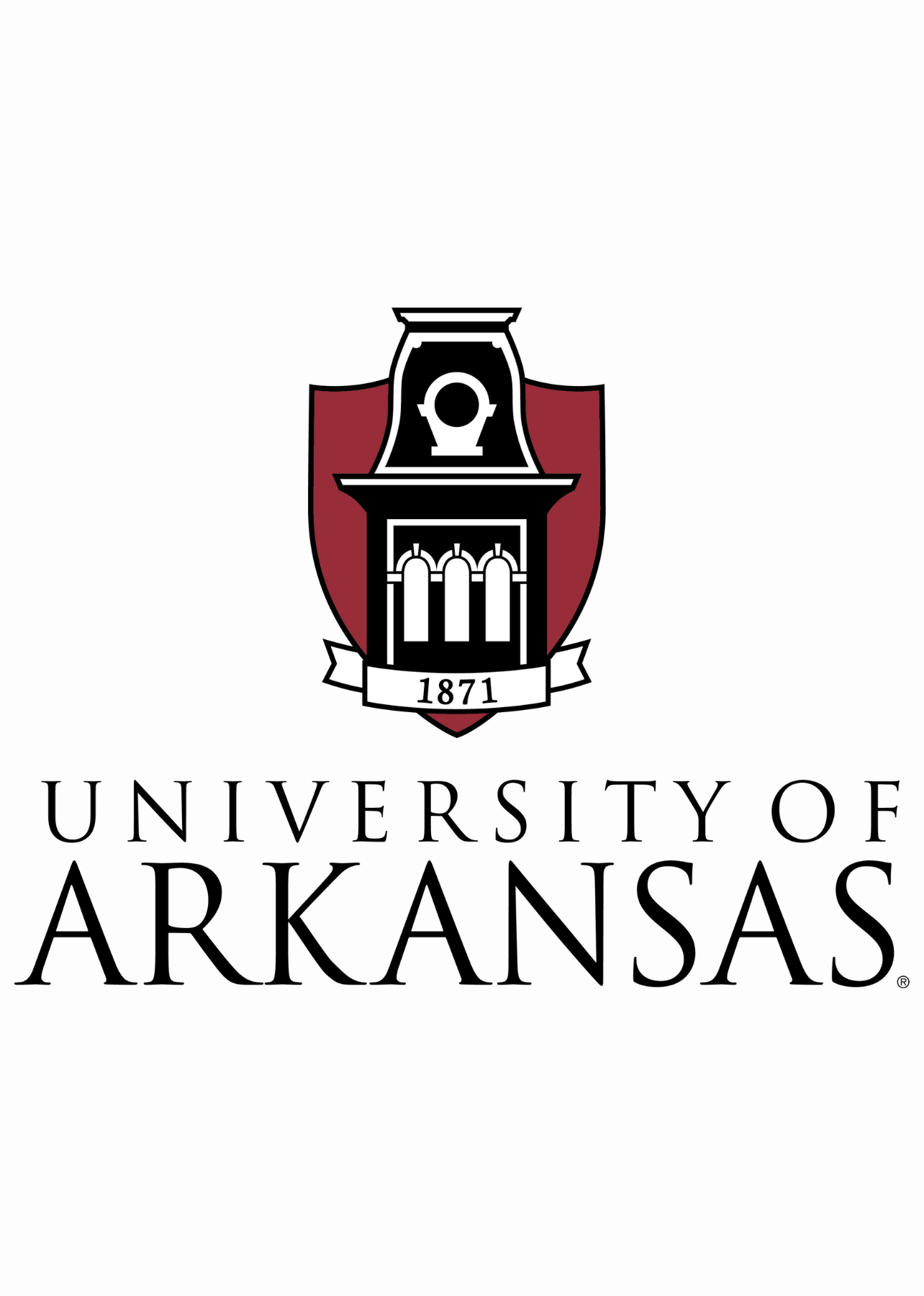
University of Arkansas
Intelligent Score: 90.18In-state: $7,568
Out-of-state: $24,056
In-state: $7,752
Out-of-state: $7,752
SAT: 1090-1280
ACT: 23-29
Certificate: $263 - $313Undergraduate: $263Graduate: $313 - $594
Online, On-Campus
Higher Learning Commission
Certificate: 12-21 Undergraduate: 120 Graduate: 30-96
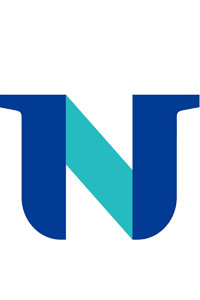
National University
Intelligent Score: 89.3In-state: $13,320
Out-of-state: $13,320
In-state: $15,480
Out-of-state: $15,480
SAT: N/A
ACT: N/A
Certificate: $370 - $1,148Associate: $370Undergraduate: $348 - $370Graduate: $442 - $1,241
Online
Western Association of Schools and Colleges Senior College and University Commission
Certificate: 8-24 Associate: 60 Undergraduate: 120 Graduate: 30-48

Albany State University
Intelligent Score: 88.98In-state: $4,064
Out-of-state: $14,786
In-state: $3,438
Out-of-state: $3,438
SAT: 740-900
ACT: 15-18
Associate: $111Undergraduate: $174Graduate: $308
Online
Southern Association of Colleges and Schools Commission on Colleges
Certificate: 19-29 Associate: 60-70 Undergraduate: 122-123 Graduate: 30-64
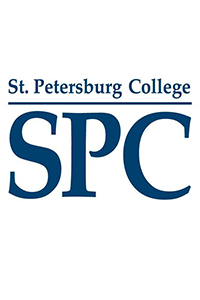
St. Petersburg College
Intelligent Score: 88.73In-state: $19,485
Out-of-state: $26,089
In-state: NA
Out-of-state: NA
SAT: Not Required
ACT: Not Required
Certificate/AssociateIn-State: $112
Out-of-State: $387UndergraduateIn-State: $123
Out-of-State: $426
Online
Southern Association of Colleges and Schools Commission on Colleges
Certificate: 12-24 Associate: 60 Undergraduate: 120

University of the Cumberlands
Intelligent Score: 88.72In-state: $9,875
Out-of-state: $9,875
In-state: $4,282
Out-of-state: $4,282
SAT: 930-1140
ACT: 19-24
Certificate: $315 - $355Associate: $220Undergraduate: $220Graduate: $315 - $549
Online, On-Campus, Hybrid
Southern Association of Colleges and Schools Commission on Colleges
Certificate: 12-18 Associate: 60 Undergraduate: 120 Graduate: 30-66

Valdosta State University
Intelligent Score: 88.06In-state: $4,371
Out-of-state: $15,426
In-state: $4,572
Out-of-state: $4,572
SAT: 990-1140
ACT: 19-23
Undergraduate: $187 Graduate: $300 - $757
Online
Southern Association of Colleges and Schools Commission on Colleges
Certificate: 12-18 Undergraduate: 120 Graduate: 30-55

University of Nebraska Omaha
Intelligent Score: 87.29In-state: $7,770
Out-of-state: $24,900
In-state: $6,138
Out-of-state: $6,138
SAT: 1110-1320
ACT: 22-28
Undergraduate Resident: $277 - $397
Non-Resident: $643 - $1,158 Graduate Resident: $401 - $531
Non-Resident: $531 - $1,375
Online
Higher Learning Commission
Certificate: 15-18 Undergraduate: 120 Graduate: 51-54
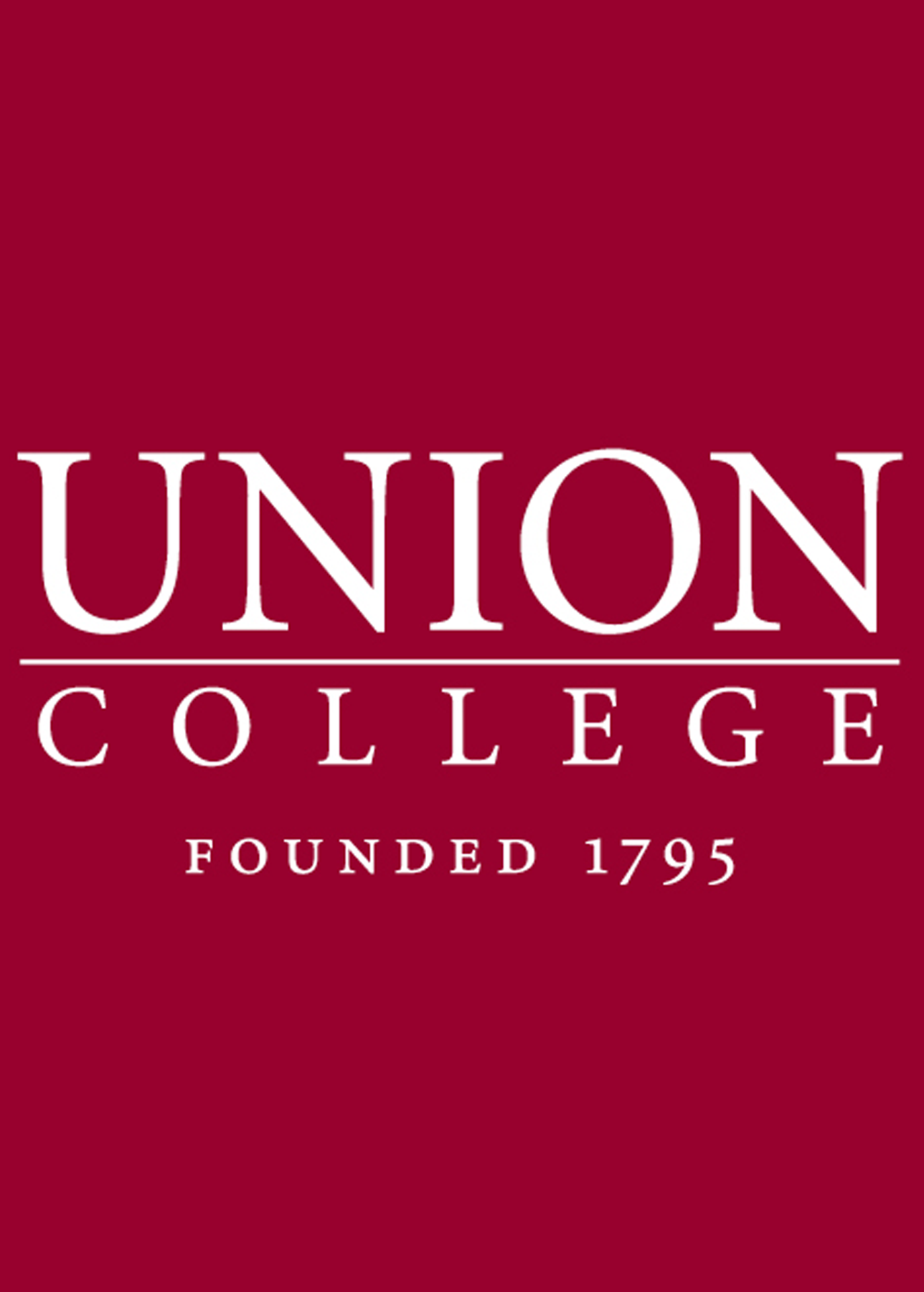
Union College
Intelligent Score: 86.96In-state: $26,330
Out-of-state: $26,330
In-state: $8,160
Out-of-state: $8,160
SAT: N/A
ACT: 17-22
Undergraduate: $225 Graduate: $370
Online
Southern Association of Colleges and Schools Commission on Colleges
Undergraduate: 120 Graduate: 30
Cost Breakdown for Online Colleges and Universities
Understanding the costs associated with an online degree can help you determine what will make a college affordable to you.
Tuition
The primary cost for any college degree, whether you’re earning it online or in person, is tuition. Generally, online students who are enrolled in a full-time program will pay a flat tuition fee for the term. Meanwhile, part-time students typically pay per credit hour, which means they may pay less per term than full-time students. However, it’s important to remember that all online programs have minimum credit requirements, so students who pay per credit hour will end up paying the same amount (or possibly more) in the long run than full-time students. Your degree level (associate, bachelor’s, master’s, or doctoral) also makes a difference in tuition rates.
Fees
Even the most affordable online colleges typically charge additional fees to help offset costs for specific resources. For online programs, this can include fees for technical support, online classroom technology and software, health and wellness services, academic and library resources, and more. These fees for online courses may be assessed on a per-term, per-year, or one-time basis.
Personal technology
A reliable personal computer and high-speed internet connection are essential for success in an online degree program. Online students taking live virtual classes also need good audio and video equipment, including a microphone and webcam. Before enrolling in an online college, assess your current tech set-up and determine if you’ll need any new equipment so that you can include those costs in your budget. If you need a computer or other hardware, find out if your online school partners with any stores or companies to offer discounts.
Books and other learning materials
Even in an online program, you may still be required to purchase books, either in a hard copy or digital format. Some online courses may also require specific software programs or other online learning materials for completing assignments. While these costs may be minimal compared to tuition, online learners should include them in their budget to help avoid unexpected expenses during the school year.
Factors Influencing the Cost of an Online Degree
Tuition rates vary between different online colleges (and sometimes even between different online programs at the same online college) based on several factors.
Public vs. private institutions
A key determining factor in a school’s tuition costs is whether it’s a public or private institution. Public online colleges receive federal and state money to help lower tuition rates, particularly for students within the state where the school is located. Private online colleges rely primarily on tuition (as well as endowments and investments) to fund their operations and typically charge higher tuition rates than public colleges.
Student residency status
For online students who attend public universities rather than private colleges, where they reside can impact their tuition. Online students who live in the state where the school is located are considered “in-state” and typically pay a lower tuition rate than out-of-state students. However, with the expansion of online programs, more schools are offering in-state tuition to all students, regardless of residency. You may want to seek out affordable online colleges that offer this benefit. Private institutions charge all online students the same tuition rates, regardless of their home state.
Nonprofit vs. for-profit
Online colleges in the U.S. are classified either as nonprofit or for-profit entities. All public universities are nonprofit, while private colleges can be nonprofit or for-profit.
While tuition rates at some for-profit schools may be lower than private nonprofit schools, it’s important to remember a key difference between these two types of schools. Nonprofit institutions must reinvest their revenue into the institution in the form of infrastructure, faculty and staff salaries, student services, and more. Meanwhile, for-profit institutions are designed, as the name implies, to generate a profit for the company and shareholders behind the school, meaning they often spend less on instruction, infrastructure, financial aid, and other services that directly support students.
Regardless of which type of online college you’re considering, it’s important to research how they invest your tuition, to ensure you’re getting good value for your money.
Student military status
Affordable online colleges often offer discounted tuition rates for individuals who are active-duty servicemembers, veterans, and spouses of military members. Online students who think they may be eligible for discounted tuition based on past or current military service should check with their school’s financial aid or military services office.
Most Affordable Online Colleges and Universities
How we rank schools
This list features some of the most affordable online colleges and universities in the U.S. All are nonprofit, accredited institutions, either public or private, with a high standard of academic quality for post-secondary institutions.
We evaluated each of these affordable online programs on tuition costs, admission, retention and graduation rates, faculty, reputation, and student resources. Then we calculated the Intelligent Score on a scale of 0 to 100. Read more about our ranking methodology.
Next, we compared our picks for the most affordable online colleges to a list of aggregated college rankings from reputable publications like the U.S. News & World Report, among others, to simplify a student’s college search. We pored through these rankings so students don’t have to.
Online Colleges Programs That Might Interest You
Learn about start dates, transferring credits, availability of financial aid, and more by contacting the universities below.
How To Pay for an Online Degree
Out-of-pocket
If you or your family are paying your own money directly to your online school, that’s considered paying out of pocket. Depending on their financial circumstances, online students may pay entirely out of pocket or combine their own money with other financial aid like student loans, scholarships, grants, and tuition assistance benefits.
According to Marvin, “If you’re paying out of pocket, find out if the college offers a payment plan, which spreads tuition payments over the term. For some families, a small monthly payment plan going directly to the college without interest may be a better solution to taking out a large student loan.”
Federal student loans
The U.S. Department of Education’s federal student loan program offers different types of loans to online undergraduate, graduate, and professional students and their families. These include Direct Subsidized Loans, Direct Unsubsidized Loans, and Direct PLUS Loans. Interest rates and repayment terms for federal student loans are fixed and generally more favorable than private education loans.
To determine eligibility for federal student loans, online students and their families (if online students are dependents) must complete the Free Application for Federal Student Aid (FAFSA). For a more in-depth overview of the FAFSA and financial aid application process, check out our Ultimate FAFSA Guide.
Private education loans
Online students can borrow money from private lenders like Sallie Mae, SoFi, and Ascent. While the government sets interest rates for federal student loans, rates for private loans vary based on factors like current market rates and individual credit scores.
Marvin advises online learners to use federal loans for their college education before looking into private loans. “Federal loans are preferable because qualification doesn’t depend on a credit score, and they offer multiple options for repayment, like income-driven plans and loan forgiveness programs,” she says. For online learners who need private loans, Marvin says, “Keep an eye on what rates are like throughout the year. While one company might have the best rate while you’re browsing, it can easily change by the time you’re ready to commit.”
Scholarships
A scholarship is money awarded to a student to cover tuition costs and other college education expenses that doesn’t need to be repaid. Scholarship sources include schools, employers, individuals, private companies, nonprofits, community and religious groups, and professional organizations. Scholarships may be awarded based on merit, financial need, or specific demographics, such as women, first-generation college students, or adult learners. Generally, online students must complete the FAFSA and other application materials to apply for scholarships.
Researching and applying for scholarships can be time-consuming, but Marvin says it can be well worth the effort. “Students and families should explore all avenues for scholarships, both from the school and outside organizations, before officially taking out a loan,” she says. “Scholarships can lower the loan amounts students need to borrow or cover the cost completely!”
Grants
Like scholarships, grants are gift aid that doesn’t have to be repaid. However, grants are typically awarded based on financial need as opposed to merit, like scholarships. The U.S. government offers grants, including the Federal Pell Grant and the TEACH Grant, through the federal student loan program. Many state governments and individual colleges and universities also award grants to eligible online students.
Work-study
As part of their financial aid package, online students may choose to participate in the Federal Work-Study Program. This allows students to earn money to pay for school and living expenses by working part-time at their college. Students earn at least the federal minimum wage, although some positions pay more based on responsibilities and level of experience.
Undergraduate and graduate students are eligible for work-study. Online students who are interested should contact their school to find out if they have remote work-study opportunities.
Employer tuition assistance
Students who intend to work while earning their online degree should find out if their employer offers tuition assistance benefits. Although specifics vary by company, tuition assistance typically involves employers reimbursing employees for some or all of their educational expenses. This is becoming a more common employee benefit, with major companies like Apple, McDonald’s, Starbucks, and UPS offering employees money to attend college.
Online College/Degree Scholarship Database
Intelligent Scholarship Finder Tool
"A Helping Hand" Scholarship
Award Amount: $500
Due Date: January 31, 2025
"A Helping Hand" Scholarship
Award Amount: $500
Due Date: January 31, 2025
"Commencing at Community College" Essay Scholarship
Award Amount: $1,000
Due Date: Closed for 2024
"Follow Your Own Path" Essay Scholarship
Award Amount: $500
Due Date: January 31, 2025
"Follow Your Own Path" Essay Scholarship
Award Amount: $500
Due Date: January 31, 2025
"Mom to Scholar" Scholarship for Mother
Award Amount: $1,000
Due Date: January 31, 2025
"Outstanding Undergraduate" Essay Scholarship
Award Amount: $1,000
Due Date: January 31, 2025
"Tuition Solution" Scholarship for STEM Students
Award Amount: $500
Due Date: January 31, 2025
$1,000 Excellence in Online Education Scholarships
Award Amount: $1,000
Due Date: October 15 or March 15
$25k "Be Bold" No-Essay Scholarship
Award Amount: $25,000
Due Date: Closed for 2024
How To Choose the Online College or University That’s Right for You
Step 1: Clarify what you want
There are many factors to consider when choosing an online college or university. It’s essential to have as much clarity as possible on what you want before beginning your search to find the best fit.
To find affordable online programs, first determine how much you or your family can pay out of pocket and how much you’ll need to be subsidized through loans, scholarships, and other funding avenues. Even if you need student loans to pay for your college education, setting an overall budget can help you limit the total amount of money you’ll need to borrow.
Other practical considerations include scheduling and instruction methods. Now is an excellent time to determine if you prefer synchronous or asynchronous online classes and part-time or full-time enrollment. Consider your learning style and whether you should seek out online programs that rely on autonomous teaching methods, like pre-recorded lectures and reading assignments, versus interactive programs with group discussions and hands-on learning experiences.
Clarifying your education and career goals is also helpful. What level of education will qualify you for the jobs you want? Does your intended field require a particular major or specialization? Will you pursue graduate study in the future?
With so many online colleges to choose from, the more specific you can be about what you want, the easier the following steps will be.
Step 2: Research schools and programs
Having clear parameters will help you narrow your search among the hundreds of available online colleges available.
Regardless of personal needs and wants, all students should confirm that the schools they are considering are accredited. There are two types of institutional accreditation for schools in the U.S., regional and national. Regional accreditation is more common and more widely recognized, as their quality standards are more rigorous. A school’s accreditation (or lack thereof) can impact a student’s job prospects and ability to transfer credits to another school or pursue further education. Most schools publish their accreditation status on their website. You can also verify accreditation through the Council for Higher Education Accreditation’s online directory.
As you research schools and programs, the following questions can help you determine the right fit:
- What financial aid opportunities, including scholarships and grants, are available to online students?
- What fees does the school charge online students?
- How do online students interact with faculty, classmates, and staff?
- Does this school offer a quality academic program in the major I want?
- What type of support services does the school offer online students?
- What kind of networking opportunities do online students have access to?
In addition to visiting the school’s website, students can learn more by contacting the school’s admissions office or program representatives, following the school on social media, and attending in-person or virtual open houses and information sessions.
Step 3: Prepare for applications and tests
It’s also a good idea to dig deeper into the school’s application and admissions requirements during the research process. These can vary based on individual college and the specific degree or program, but generally speaking, an application for an online program consists of the following:
- Application form
- Official transcripts (high school for first-time freshmen or college for transfer and graduate students)
- Letter(s) of recommendation
- Personal essay
- Standardized test scores (SAT or ACT for undergraduate students, GRE or GMAT for graduate students)
Regarding standardized tests, students should be aware that an increasing number of schools are moving to test-optional or test-blind admission policies. Students should confirm school policies before signing up for standardized college entrance exams.
Application deadlines also vary by school. Some online colleges have rolling admissions and multiple start terms throughout the academic year, while others only enroll new students once or twice per year. Confirm application deadlines and submit all required materials by due dates to ensure you can register for your desired term.
Step 4: Select your program
Once you’ve conducted all your research and have a clear understanding of your options, you can select the colleges and programs to which you’ll apply.
How many schools you apply to is a personal choice. Some students apply to multiple schools to increase their chances of acceptance, especially if they’re applying to competitive schools or programs. Others focus on one or two schools based on cost, location, or program availability.
One thing to keep in mind is that most schools charge application fees, with the average fee costing around $45. Students should budget for application fees or determine if they’re eligible for application fee waivers from organizations like the College Board.
Step 5: Determine how you'll pay for your degree
Your research should also include speaking to financial aid counselors at the schools you’re considering to learn more about tuition, fees, and financial aid opportunities like scholarships and grants. Find out if students are automatically considered for all scholarships and grants or if there are specific application requirements.
If you still need to complete your FAFSA, now is the time to do so. Most schools will send students a financial aid package, including federal student loan eligibility, scholarships, and grants, with their acceptance or shortly after. It’s important to have as much information as possible about how much your program will cost and how much financial aid you’re receiving so you can make a well-informed decision about which online college you should attend.
